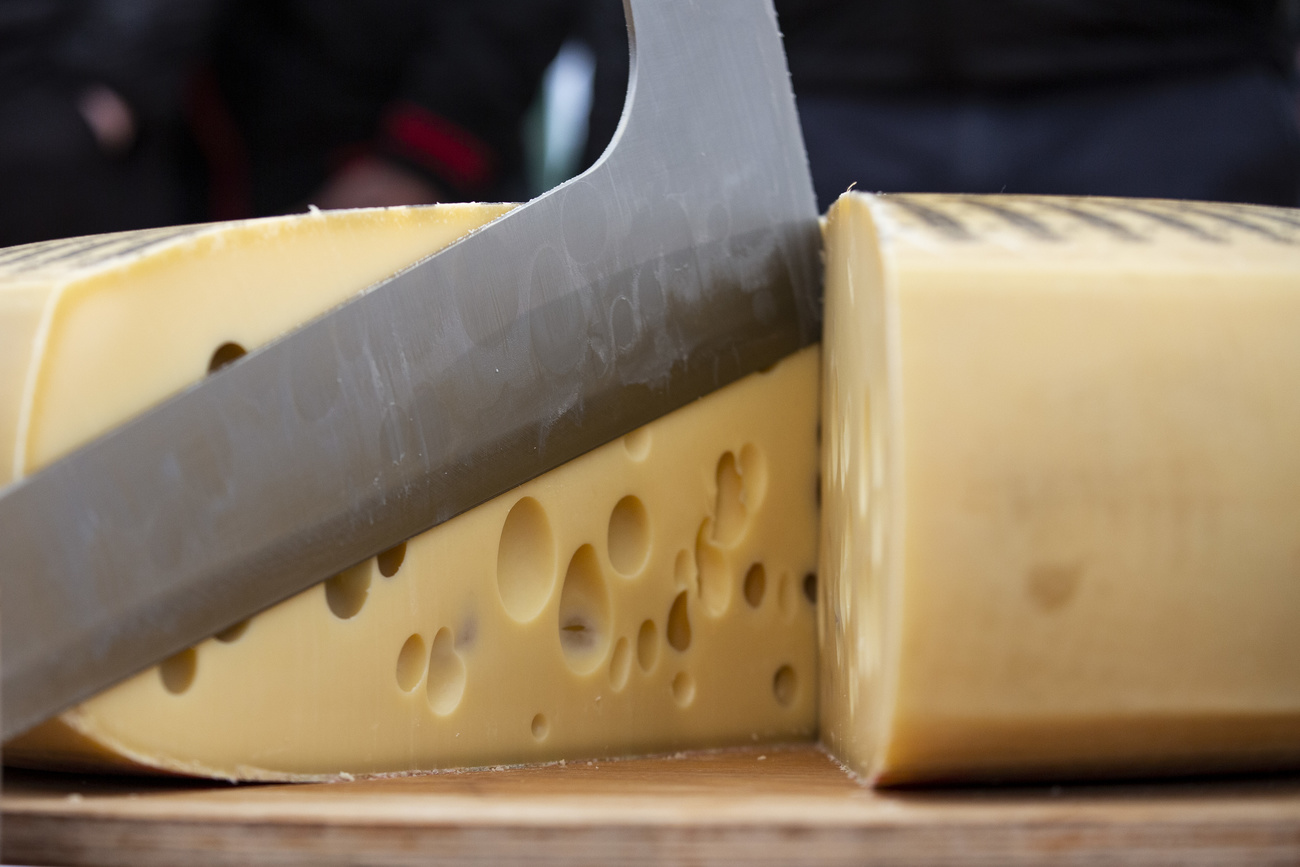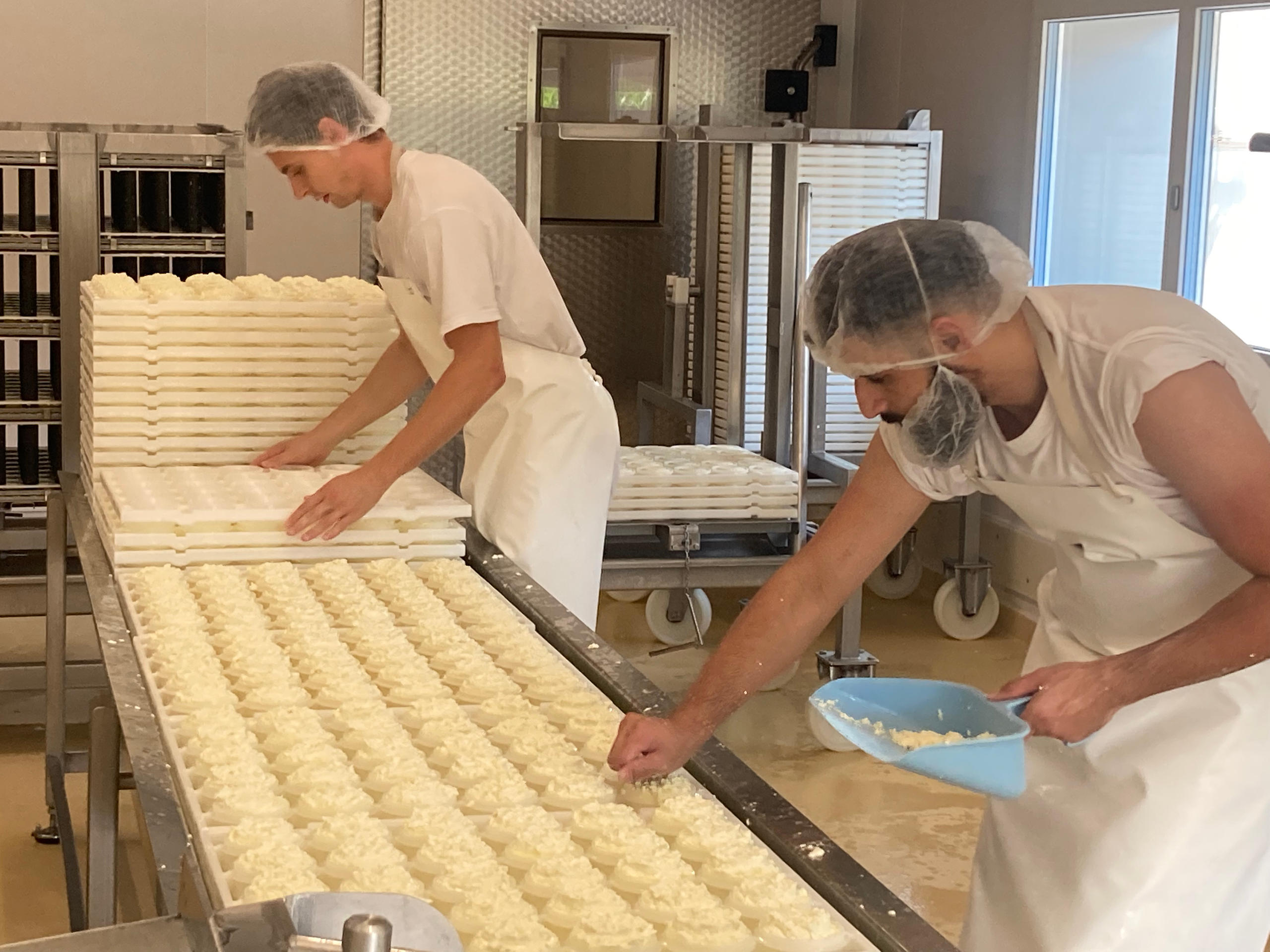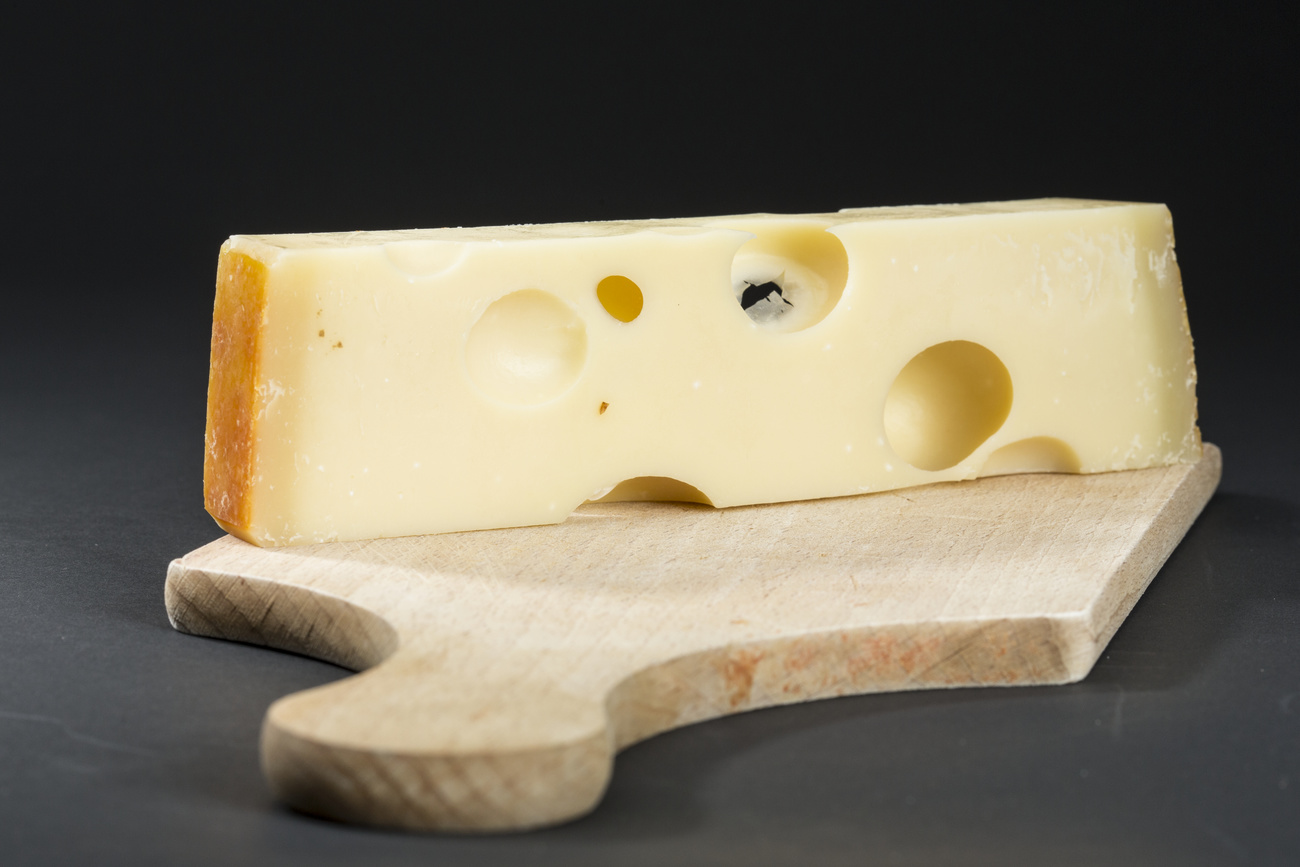
The mysterious (court) case of the disappearing cheese holes

The Emmentaler Switzerland organisation wants to use hay flower powder to create larger holes in Emmental cheese. The Federal Administrative Court must decide whether this is allowed in Switzerland.
The holes in Emmental cheese are getting smaller and smaller. Years ago, Swiss researchers discovered that this was due to hygiene: In the past, hay dust got into the milk during manual milking. Bacteria formed and produced gases, which led to the characteristic holes. Since modern milking machines have been used, the holes have shrunk because the machines draw the milk so cleanly from the udder that fewer hay particles get into the milk. This is also a quality problem, because the smaller the holes in the cheese, the more likely it is that gaps and cracks will form.
This realisation is not entirely new. It had already been noticed earlier that Emmental cheese made from summer milk has smaller holes than that made from winter milk. The cows ate hay in winter and dust-free grass in summer.

More
How are you? What is on your mind? Take part in our big survey
Some cheese manufacturers take advantage of this and add hay dust to the milk. German or French Emmental, for example, has much larger holes – thanks to the addition of hay flower powder. In Switzerland, however, the use of such additives in Emmental is prohibited under the rules of the protected designation of origin.
The Emmentaler Switzerland organisation wants to change this. It has submitted an application to change the specifications for Emmental cheese. The Federal Office for Agriculture has rejected the application on the grounds that the use of additives would lead to the industrialisation of Emmental cheese.

More
Two backgrounds, one passion in the heart of the Emmental
A public hearing was held at the Federal Administrative Court in St Gallen last week.
The Federal Office for Agriculture told the court that the quality of Emmental cheese was good and that hay flower powder was therefore not necessary. The use of the powder was not a traditional production process. However, Emmental must be different from industrialised large-hole cheeses such as Edam, which consumers can expect from a protected designation of origin.
The lawyer for the Emmentaler Switzerland consortium, which represents the interests of milk producers, cheese dairies and trading companies, countered that it wasn’t about jeopardising the reputation of Emmentaler, on the contrary. It was about preserving the tradition of the characteristic holes. “Because if we do nothing, they will disappear,” the lawyer saod, warning that this would lead to corresponding economic damage.
Nothing has been decided yet.
Adapted from German by DeepL/ts

More
Switzerland has no unique claim to Emmental cheese, EU court rules

In compliance with the JTI standards
More: SWI swissinfo.ch certified by the Journalism Trust Initiative






























You can find an overview of ongoing debates with our journalists here . Please join us!
If you want to start a conversation about a topic raised in this article or want to report factual errors, email us at english@swissinfo.ch.